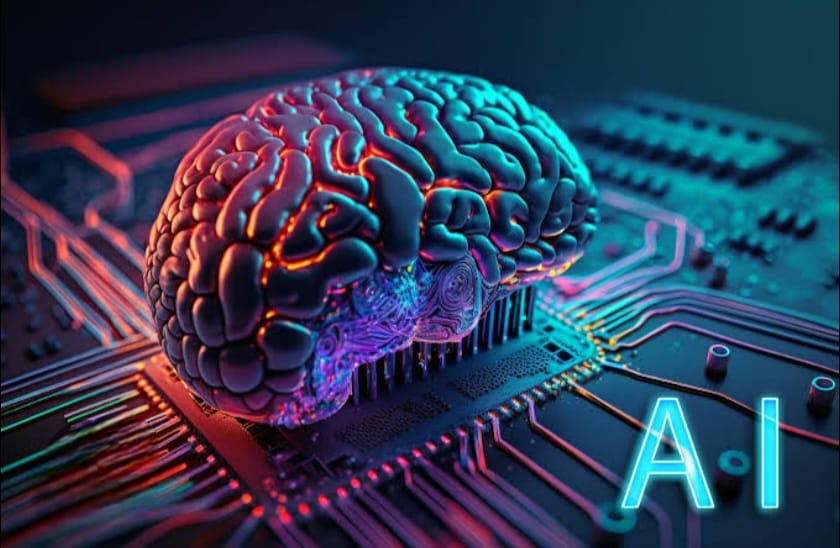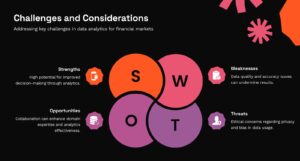
Artificial Intelligence (AI) is the forefront of technological innovation, mimicking human intelligence to perform tasks that traditionally require human cognition. From self-driving cars navigating complex environments to personalized recommendations on streaming platforms, AI permeates various aspects of modern life. Its potential spans healthcare, finance, and education, revolutionizing industries with predictive analytics, automation, and decision support systems. The evolution of AI, i.e. Artificial Intelligence, marked by significant milestones has opened up a spectrum of possibilities that were once thought of as only dreams. This article explores the current examples and applications of AI as well as some future possibilities and how it could prove to be useful.
ChatGPT by OpenAI, Siri by Apple, Amazon’s Alexa, and Tesla autopilot are some examples of the revolution of AI. Healthcare is being revolutionized by AI tools. One such example is the IBM Watson Health assist in diagnosing diseases by analyzing medical records and research papers. Another example is AI in radiology helps in identifying anomalies in X-Rays and MRIs with high accuracy.
In the financial sector is employed for fraud detection, algorithmic trading and customer service. Algorithmic trading uses AI to execute trades at optimal times based on market data analysis. In retail, AI is used for personalizing shopping experience and inventory management. Virtual assistants engage customers, answer queries, and streamline the shopping process.
AI plays a vital role in autonomous vehicles, optimizing route planning, traffic management, and logistics operations. Machine learning algorithms analyze traffic patterns, reducing congestion and improving safety. Ride-sharing platforms leverage AI for dynamic pricing and driver allocation.
Relating to cyber-security, AI algorithms detect and respond to cyber threats in real-time, safeguarding networks and sensitive data. Machine learning models identify anomalous behavior and patterns indicative of cyber-attacks, enhancing threat detection capabilities.
From computers solving algebra problems and proving theorems to now Tesla being auto-driven, AI has proved to be a useful tool that improves efficiency, productivity and quality of life across various sectors.
The future of AI is both exciting and uncertain. Continued advancements in AI research promise to unlock new possibilities. The integration of AI with other emerging technologies such as quantum computing could lead to revolutionizing innovations. In healthcare, AI could enable precision medicine on a large scale, making it possible to alter the genetic constitution of an individual. AI-driven robots might assist in surgeries, improving outcomes and chances of survival. In education, AI could create fully personalized learning environments, ensuring that every student receives the support they need to succeed.
The future could witness closer integration between humans and AI, fostering symbiotic relationships where AI augments human capabilities rather than replacing them. AI assistants will anticipate human needs, automate routine tasks, and provide personalized recommendations, enabling individuals to focus on higher-order cognitive tasks and creative endeavors.
AI will enhance augmented reality (AR) experiences, seamlessly integrating digital information and virtual elements into the physical world. AI-powered AR glasses will provide real-time contextual information, personalized recommendations, and immersive storytelling experiences, transforming how we perceive and interact with our environment.
AI could also become more than just tools; they have the potential evolve into sentient companions capable of understanding human emotions, intentions, and context. These AI companions will be able to provide empathetic support, companionship, and guidance, catering to individual needs and preferences. They will revolutionize mental health care by offering personalized therapy and emotional support to individuals in need.
In conclusion, AI is undeniably a transformative force that could reshape industries and redefine possibilities of human achievement. Striking a balance between innovation and responsible deployment is crucial as AI continues to shape our future. By prioritizing ethical considerations, fostering inclusive growth and investing in education and research, we can harness the power of AI to create a better future for everyone.

Author – Manaswi Singh
St Joseph’s Academy.










